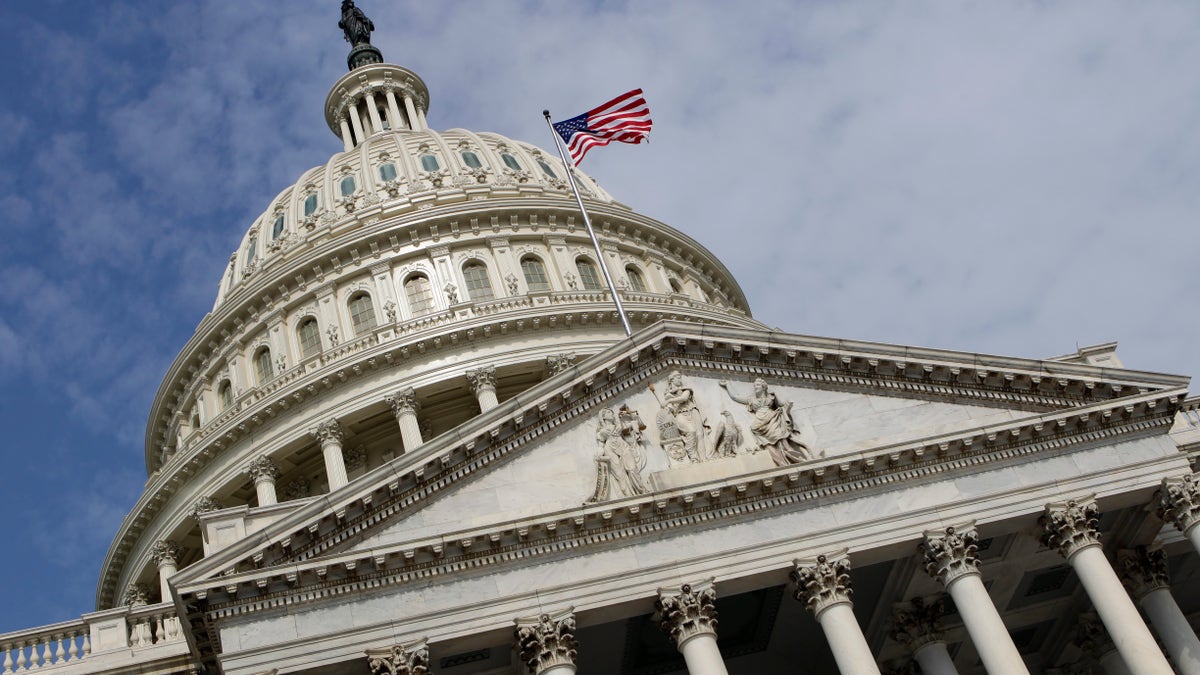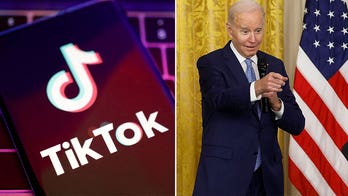
The Capitol Dome is seen on Capitol Hill in Washington July 28, 2011. (AP)
The coming year-end spending spree after so much debate over budget deficits shows just how hard it is to stem the government's flow of red ink.
Lawmakers are poised to spend $120 billion or so to renew a Social Security tax cut that averaged just under $1,000 per household this year. They're ready to commit up to $50 billion more to continue unemployment benefits to people out of work for more than half a year.
And doctors have no reason to doubt they won't be rescued, again, from steep cuts in their Medicare payments. Combine that with the tax cuts and jobless benefits, and Congress could add almost $200 billion to the federal ledger this month.
That's why it's excruciatingly difficult to cut the deficit, even when the House is influenced by Tea Party forces.
The year-end spree follows the failure of three high-profile efforts at big deficit deals: talks led by Vice President Joe Biden; efforts by President Barack Obama and House Speaker John Boehner, R-Ohio, to strike a "grand bargain"; and the ignominious cratering of a special deficit Super Committee before Thanksgiving.
Each disintegrated in great measure over the question of taxes. But their failures also illustrate the tremendous difficulty in getting anyone to actually cut spending.
The singular success in attacking the deficit this year came after a protracted battle this summer over whether to let the government continue borrowing. That fight finally produced a promise interests aren't the only lawmakers scampering to protect their favorite programs. The Super Committee's experience exposed the great difficulty of coaxing lawmakers to embrace real spending cuts in other programs.
The chairmen and senior minority members of the Senate and House agriculture committees tried to add a five-year farm bill onto a deficit panel package that never came together. They promised "reforms" that would end much-criticized direct subsidy payments to Southern rice and cotton growers whether they farm or not.
But instead of banking the nearly $50 billion in savings, farm-state lawmakers maneuvered to channel much of the money to a new subsidy for locking in four-decade-high revenues for corn and soybean growers in the Midwest.
The new subsidy would act as a free revenue insurance and could pay out if a farm lost as little as 13 percent of its revenue in a year. They easily could end up costing the government as much or more than the current subsidies to cotton and rice growers
The revenue insurance idea, said Bruce Babcock, an agricultural economist at Iowa State University, is a "cynical attempt to turn deficit reduction into a guarantee of prosperity for large-scale agricultural interests."
Republicans insist that extending the Social Security tax cut and jobless benefits for the long-term unemployed must be paid for through cuts to other programs or finding other non-tax sources of money for them.
But using any such arrangements means they're no longer available for cutting deficits.
A list presented Friday to Republicans at a private caucus contained "cuts" that are among the easiest to enact. They include around $15 billion from new auctions of broadcast spectrum to wireless companies, and $35 billion by increasing the fee that mortgage companies Fannie Mae and Freddie Mac charge lenders to guarantee repayment of new loans. The fee increase would add $15 a month to the monthly cost of an average new mortgage, the White House estimates.
Conspicuously absent are politically nettlesome proposals such as raising airline security fees from the current rate of $2.50 per trip leg, which was part of a recent proposal by supercommittee Republicans.
These spending cuts are measured over 10 years to pay for deficit spending that occurs over the next year or so, which has generated much grumbling among conservatives.
"It's a gimmick," said Rep. Jeff Flake, R-Ariz. He complained that the pay-for proposals are spread over a decade while the tax savings to workers and aid for the unemployed are for a single year. He predicted the same dance would occur again year from now when both parties will feel the political pressure to renew them again.
The White House, after saying all fall that Obama's jobs agenda must be paid for with tax increases on high-income earners, appears willing to simply pad the nation's $15 trillion national debt instead of finding offsetting cuts.
"It's not even any more about how you pay for it," said White House press secretary Jay Carney. "It's whether or not one party actually supports giving tax cuts to middle-class Americans."




